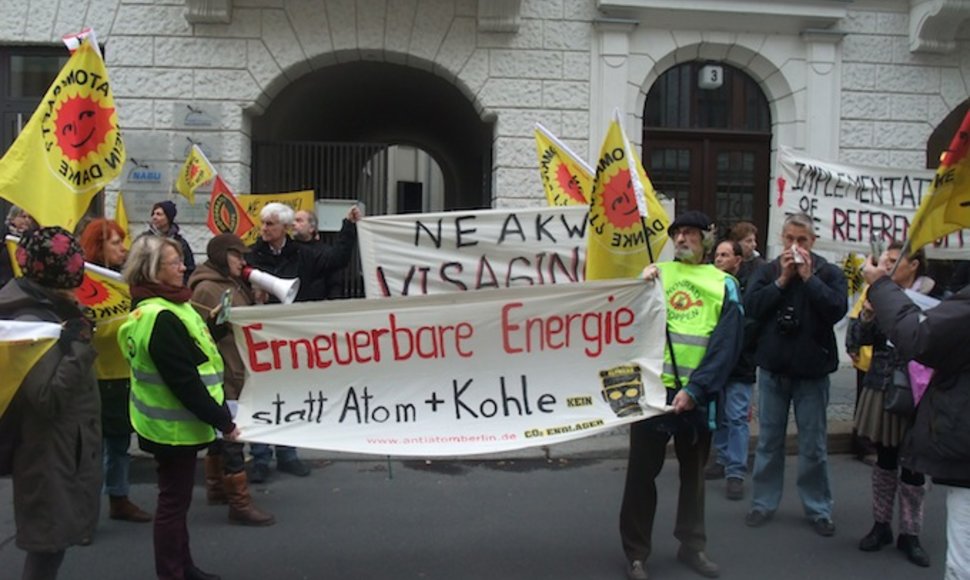The protesters expressed their concerns about Lithuanian politicians' statements that, the protesters said, showed they were prepared to ignore the results of the referendum.
”The real state of democracy in a country is measured by examining whether it is implementing its laws or not,” said Heila Beyme of Anti Atom Berlin. Petra Sawade from the same antinuclear group emphasized that many citizens in Germany were worried about democracy in Lithuania: “Anti Atom Berlin, Germany and other countries of the EU will go on fighting against Visaginas nuclear power plant.”
The protestors shouted, in Lithuanian, "Ne atominei!" ("No to nuclear power plant!"), held banners in German, Lithuanian, and English reading "Implement referendum results", "Ne AKW Visaginas" (AKW from German “Atomkraftwerk” – nuclear power plant), "Renewable energy".
"Lithuanian people have used their constitutional right to make one of the most important decisions in the nation's life in a referendum. Now Parliament and the President must perform their constitutional duty and implement people's decision," said ŽALI.LT activist Laura Gintalaitė.
The embassy promised to deliver an open letter to the President and members of the Seimas that was handed in by the protesters. The letter was signed by a German antinuclear NGO, Bürgerinitiative Umweltschutz Lüchow-Dannenberg (Lüchow-Dannenberg Citizens Initiative for Ecological Protection), and Lithuanian association ŽALI.LT. "It would be unconstitutional to ignore people’s decision to become a nuclear-free country and continue the talks with Hitachi-GE on the construction of the new nuclear power plant in Visaginas," reads the letter.
The organizers estimate that more than 40 people from Germany, Japan, Poland and other countries participated in the protest.
On 14 October, Lithuania held an advisory referendum on the construction of Visaginas Nuclear Power Plant. About two thirds of the turnout voted against the nuclear project.












